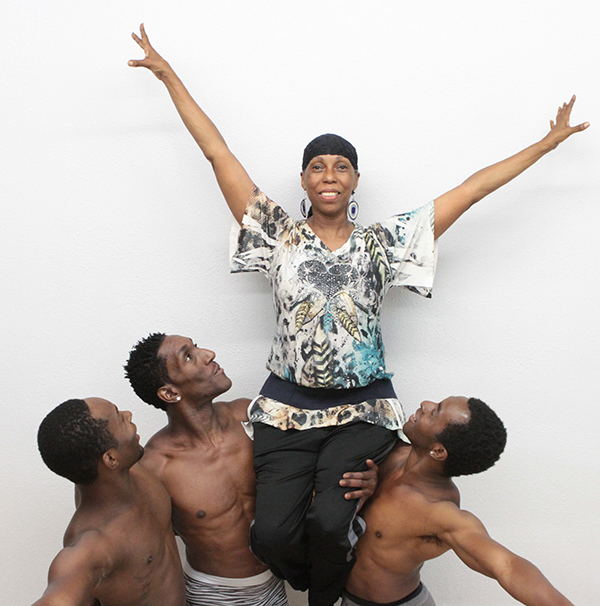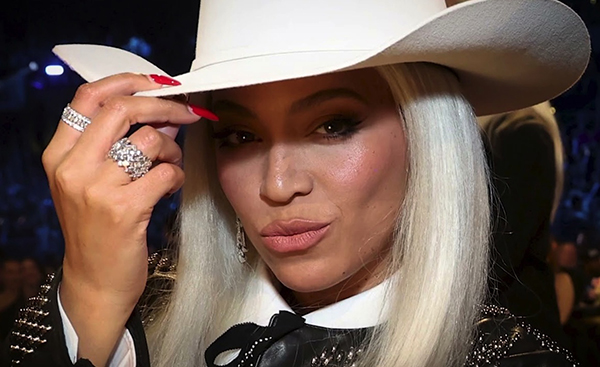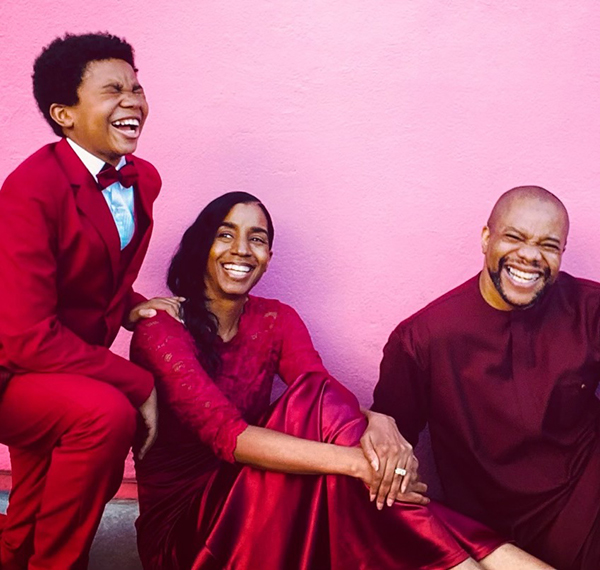By Darlene Donloe
Contributing Writer
CRENSHAW — When Lula and Erwin Washington got word in December that they had been awarded a $970,000 grant from the Andrew W. Mellon Foundation, it was like receiving an early gift for both their 51st wedding anniversary and the 41st anniversary of the Lula Washington Dance Theatre, both of which took place in January.
It was the second-largest grant the dance company had ever received — behind the $1.3 million FEMA grant they were awarded in 1994 after their dance studio was destroyed during the Northridge earthquake. That grant bought the building on Crenshaw Boulevard that they currently occupy.
The Lula Washington Dance Theatre, a repertoire dance ensemble founded in 1980 by the Washingtons, is an international dance company known for its powerful, high-energy dancing and original and challenging choreography. Lula and Erwin Washington are two larger-than-life personalities who have long been embedded in the arts in Los Angeles.
The Mellon grant will help fund the dance company’s facility upgrades and will allow the company to change its infrastructure by adding more jobs and increasing the compensation of its dancers, while also creating new works for future performances.
The grant is part of the foundation’s Comprehensive Organizational Health Initiative, a program launched in 2015 to help underserved arts and cultural institutions move from survival to sustainability.
The initiative has given $33 million to regional art conservation centers, theater and performance groups that are part of the National Performance Network, and members of the International Association of Blacks in Dance.
“This grant is a change grant,” said Erwin Washington. “It’s meant to change our circumstances and how we operate. It’s supposed to take us from being chronically underfunded to being financially steady. It was meant to see growth and our expansion to sustain ourselves and put us in a position to support the next generation of leadership in a succession that will happen at some point.”
Erwin Washington said the grant will help the dance company set up its infrastructure so the theater can “survive” for another 40 years.
“It will help us transition,” he said. “It will help our daughter (Tamica Washington-Miller) get prepared and to learn, and to build her own team and support system. Lula and I have both reached age 70. We can’t beat age and time. Things happen as you get older. We need to have things in place.”
“We’re not in a place yet where we can be financially stable,” said Lula Washington, a founding member of the International Association of Blacks in Dance (IABD). “This grant will help us tremendously. COVID took a lot of our earned income, which relies on live performances.”
The Andrew W. Mellon Foundation funded the five founding members of the International Association of Blacks in Dance (IABD). The five founding IABD members received substantial “change capital grants” based on operating budgets in 2019 and 2020. They include Dallas Black Dance Theatre ($824,000), Cleo Parker Robinson Dance in Colorado ($850,000), Dayton Contemporary Dance Company in Ohio ($771,000), and the Philadelphia Dance Company ($420,000), and the Lula Washington Dance Theatre.
Denise Saunders Thompson, the president and CEO of the International Association of Blacks In Dance, an organization that has worked with 30 dance companies across the country, has nothing but praise for the Washingtons and the work they do in the community.
“Lula and Erwin have been doing good work in the community for a long time,” Saunders Thompson said. “They deserve the grant.”
“Working with the Comprehensive Organization Health Initiative is where the Washingtons were able to work with a consultant to look at the business model of their organization and begin to think about how to grow what they have and maintain and secure what they have,” Saunders Thompson added. “Now they have the opportunity to really do that. This world will not move without Black creativity. I’m excited and can’t wait to see the plans they have in place.”
“Denise [Saunders Thompson] was instrumental in helping us get the grant,” Erwin Washington said. “She guided us in the direction we needed to go in to successfully get this grant. We’re so thankful.”
“We are a connector,” said Saunders Thompson, who previously received a Mellon grant to build an infrastructure. “We are that mouthpiece. IABD is a membership organization. Now we can actualize to assist artists in companies in education, performing, and advocacy. That has been due to Mellon.”
The Washingtons caution that just because they received the Mellon Foundation grant, it doesn’t signal that all foundations are starting to appreciate arts in the Black community.
“This country has really put in place some systems that oppress ‘cultural institutions,’” said Lula Washington. “When you put a Kennedy Center in the same pool as us, and include budget size, and reach, there are so many inequities in the system or criteria in selection.”
“No, it doesn’t signal appreciation by all foundations at all,” said Erwin Washington. “It does signal that Mellon appreciated our position. Mellon is an enlightened foundation. I’m hoping other funders will take a lesson from Mellon and help to support other groups like us who serve in the city. I haven’t seen evidence that that’s happening. Mellon was impressed with what we had done. They are investing in our future.”
In a city filled with wealthy Black people, Lula Washington said there has been little to no support.
“We shouldn’t have to beg our community,” she said. “Our community should see the important value of what we bring. They should want to support that.
“The Black folks who are rich here are not looking to do that. We don’t have a lot of wealthy donors or staff to cultivate those relationships. A lot of them support theater and music. We understand it’s competitive. We have to compete against homelessness, racism, and people getting evicted. It’s a very difficult time. We’re a dance company trying to put a smile on somebody’s face.”
Despite that, Erwin Washington said 2021 is going to be a year of growth.
“We will build our infrastructure,” he said. “We will slowly increase our program and build up a team to help us move forward. I think it will be a launch-pad year to launch us into better things.”
Like most businesses, the Lula Washington Dance Theatre had to pivot in the face of COVID-19.
“We got a $150,000 grant from then-Supervisor Mark Ridley-Thomas,” said Erwin Washington. “With that money, we bought an outdoor stage and canopy and offered classes outside. To keep everyone safe, we followed the protocols.”
“We’ve had to make a number of changes,” Lula Washington added. “Now only one studio is being used out of six. We had to go virtual. We only offer classes on Tuesday, Thursday and Saturday now. We can have only 10 people utilizing the spaces that are marked off. We no longer rent out space.
“We take everyone’s temperature. They now have to come in one door and out another. No one can drink from the water fountain. Only one person in the bathroom at a time. We have lots of hand sanitizer. Masks are available at the front desk. It’s a lot.”
Last year, the dance company had to cancel tours and concerts.
“There was a cut back in the money we could earn,” Erwin Washington. “We scaled back everything we did just to survive. We survived by continuing to get grants. We’re trying to weather this virus storm. It’s terrible.”
Darlene Donloe is a freelance reporter for Wave Newspapers who covers South Los Angeles. She can be reached at ddonloe@gmail.com.











